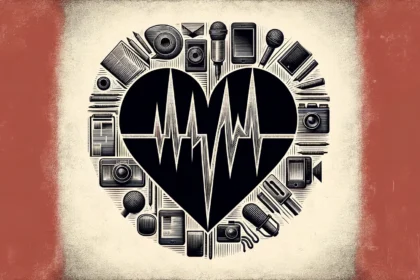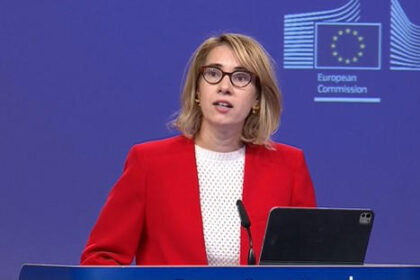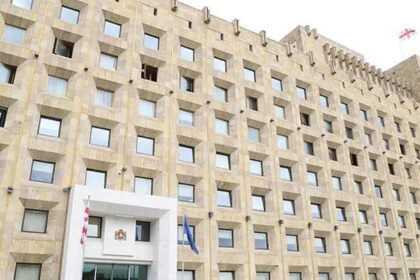The Georgian Dream has launched a new phase of repression against civil society against about 30 Georgian non-governmental organizations, according to a statement by the NGOs, which was released by the Georgian Young Lawyers Association.
As noted in the statement, the actions of the Anti-Corruption Bureau are part of a unified process of persecution and pressure on civil society organizations.
“The Georgian Dream, through the Anti-Corruption Bureau of Razden Kuprashvili, has launched a new phase of repressive enforcement of restrictive laws against civil society against about 30 Georgian civil society organizations, including signatory organizations. The actions of the Anti-Corruption Bureau are part of a unified process of persecution and pressure on civil society organizations. Its goal is to prevent Georgian non-governmental organizations, which have served for decades to protect human rights and strengthen democratic institutions in the country, from being able to effectively continue their activities and protect the interests of society.
Since September 8, 2025, civil society organizations have received letters from Razhden Kuprashvili requesting the initiation of monitoring using the Law on Grants, which is incompatible with the Constitution of Georgia. Razhden Kuprashvili has been demanding from organizations a wide range of information related to the activities of the organizations since April 16, 2025, without even formally following the procedure established by the Law on Grants. The Bureau does not indicate on the basis of which articles he is demanding the provision of information, including since April 16, when the repressive amendments to the Law on Grants entered into force on April 17.
In response to Razhden Kuprashvili’s letter, the addressee organizations explained in writing that the Bureau was violating the Law on Grants and also informed that after the repressive amendments to the law came into force, they had not received new grant agreements nor had they made any changes to the old agreements. Accordingly, the initiation of the monitoring process established by the Law on Grants on them was illegal. Civil society organizations also requested Razhden Kuprashvili’s Bureau to familiarize themselves with the case materials, however, the Bureau is still concealing this information, thus additionally violating the existing legislation.
Following the response letter, Razhden Kuprashvili is trying to ensure the enforcement of repressive laws using the courts. The Bureau is gradually applying to the court with petitions against civil society organizations. On September 17, the Tbilisi City Court has already issued an order against nine organizations. The court fully satisfied the petition of Razhden Kuprashvili’s agency and ordered the organizations to provide the Bureau with extensive information related to their activities. It is noteworthy that neither the Bureau’s letter nor the court’s order indicates the specific factual circumstances on the basis of which the organizations are found to have failed to fulfill/violated their obligations under the law under the standard of reasonable presumption. The court essentially transferred the reasoning behind the Bureau’s petition to the order without examining either the factual or legal justification for the petition, thereby refusing to exercise the judicial control granted to it by law.
Adopting a decision that merely reproduces the position of an administrative body undermines the constitutional function of proper judicial control and puts at risk both the legal status of civil society organizations and individual personal data. The role of the court is to properly investigate the legality of the actions of an administrative body, which includes not only checking formal requirements, but also substantive control.
Despite the illegally initiated monitoring, we continue our activities and legal struggle to stop the implementation of repressive laws. We will use all legal means to protect our rights and those of Georgian citizens,” reads the statement, signed by 20 non-governmental organizations, reads.
Here is a list of the signatory organizations:
Georgian Young Lawyers Association (GYLA);
Prevention for Progress;
Europe Foundation;
Women’s Initiatives Supporting Group;
Fetiz Animal Shelter;
Georgian Center for Psycho-Social and Medical Rehabilitation of Torture Victims – GCRT;
Civic Idea;
Tolerance and Diversity Institute (TDI);
Equality Movement;
Scientific and Intellectual Club “Dialogue of Generations” (RICDOG);
Rights Georgia;
Institute for Development of Freedom of Information (IDFI);
Euroclub of Kvareli;
Europea-Georgia Institute (EGI);
Media Center “Kakheti”;
Human Rights Center (HRC);
Youth for Democratic Change;
Civil Society Institute;
Democracy Institute;
Georgian Center for Strategic Studies and Development.
NGOs: Georgian Dream has launched a new phase of repression of civil society against up to 30 Georgian NGOs












